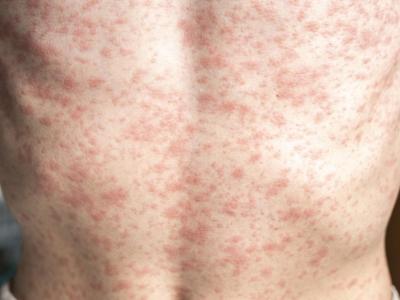Saudi Arabia has reported seven more MERS cases in the past 3 days, including two in healthcare workers, and two World Health Organization (WHO) statements today emphasized the lack of answers as to why cases keep popping up in the country.
The WHO said a team of international health officials that visited Saudi Arabia in response to the current surge in cases found a critical shortage of data on how and why infections are occurring in the community and how to improve MERS prevention in hospitals and clinics.
In a separate report, the WHO supplied some details on 43 MERS-CoV (Middle East respiratory syndrome coronavirus) cases that Saudi Arabia reported from Feb 8 through 19. Twenty-three of the patients had no history of exposure to any known risk factors, while a number of others had some possible exposure in healthcare settings.
February count reaches 62 cases
The Saudi Ministry of Health (MOH), in addition to reporting 7 MERS-CoV cases from Feb 21 through today, noted 5 deaths in previously reported cases and the recoveries of 10 other patients. The seven cases raise the country's total this month to 62. Of those, 22 have been fatal, according to the infectious-disease blog Avian Flu Diary.
On Feb 21, the MOH reported two cases in Saudi men, ages 51 and 46, in Qweyah and Khobar, respectively. Both had preexisting disease and were in critical condition. Neither was a healthcare worker (HCW), but the older man had a history of animal exposure, and the younger one was exposed to MERS-CoV in a healthcare setting.
One case was reported by the MOH on Feb 22, involving a 58-year-old male foreigner in Khobar who is not a health worker. He was listed in stable condition and had no preexisting disease or history of exposure to animals or other MERS patients.
The four cases reported today included two in Riyadh HCWs, a woman, 62, and a man, 50, who had contact with suspected or confirmed cases in healthcare settings. Both are expatriates and are in stable condition.
The other two patients, also expatriates, are a 65-year-old woman in critical condition in Jeddah and a 45-year-old Najran man who is in stable condition. The man had contact with a MERS case in the community, while the woman has no exposure history.
The MOH's cumulative MERS count has reached 907 cases, including 388 deaths, 498 recoveries, and 21 active cases. One of the 21 patients is in home isolation.
WHO cites ongoing puzzles
One WHO statement today, from the agency's Regional Office for the Eastern Mediterranean, reported on the results of a visit to Saudi Arabia by a team that included officials from the UN Food and Agriculture Organization (FAO), the World Organization for Animal Health (OIE), and France's Pasteur Institute.
The team met with MOH officials, visited the country's Command and Control Center, and toured the emergency and isolation facilities of Prince Mohammed Bin Abdulaziz Hospital, the statement said.
"Although data collection and surveillance have improved globally in recent months, critical gaps in knowledge remain, and several challenges in the country will require further work," the WHO said. "For example, how and why infections occur in the community is yet to be understood, and this is critical for stopping the outbreak.
"In addition, cases that occur in health-care settings require further analysis to fully understand what steps are needed to ensure infection prevention and control measures are adequately implemented. The fact that infections are still occurring in some health-care settings but not in others indicates that current infection control measures are effective but not implemented."
Working with Saudi health officials, the agency said, the visiting team identified four areas that need to be urgently addressed:
- Understanding how the virus passes from animals to humans
- Conducting research to fill "critical knowledge gaps in the science and epidemiology of MERS-CoV"
- Improving disease prevention, especially in health facilities that continue to experience avoidable infections
- Increasing social mobilization, community engagement activities, and communications, and improving intersectoral cooperation and coordination, especially between health, agriculture, and other sectors
Sounding a theme that has been heard many times before, the WHO said case-control studies in Saudi Arabia and other MERS-affected countries are especially needed.
Rundown on 43 cases
WHO headquarters issued the other statement on MERS today, outlining the 43 recent cases, which included 14 deaths.
As mentioned, more than half of the patients—23—had no history of exposure to any known MERS-CoV risk factors. Only four of the patients are HCWs, while another four had contact with camels, and three of those drank raw camel milk.
One of the HCWs, a 38-yer-old man from Dammam, had contact with three confirmed MERS case-patients before he got sick. A number of other patients were treated in hospital units where other MERS had been treated previously.
See also:
Feb 23 WHO statement on fact-finding trip
Feb 23 WHO report on 43 cases
Feb 21 Saudi MOH statement
Feb 22 Saudi MOH statement
Feb 23 Saudi MOH statement





















